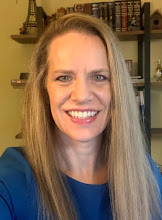We are planning our
second trip back to Ethiopia since bringing our daughter home in 2008. She is almost six and giddy with excitement. She identifies strongly with her birth
country. She has been known to ask, “Do
you know why I am special?” I will respond,
“No, why?” although I know perfectly well the reason she will give. She then answers proudly, “BECAUSE I AM
ETHIOPIAN!!” I can tell if she likes
someone we meet. In those instances, she
will tug on my arm and ask me to bend down. Then she will whisper in my ear, “Tell them
where I came from . .tell them I am from Ethiopia.” She prefers to use me as the messenger of this
special news if the person is not familiar. Then if she gets a suitable response, she will take it from there.
For a while, she
thought anyone with a similar skin tone and hair as hers was from her East
African nation. If we saw someone with
brown skin and black curly hair, she would tell me, “They are from Ethiopia
too." In some cases she was right, in
others the person was from Kenya, Somalia or the United States. I had to explain that people from a number of countries have skin similar to hers. She has also recently starting to ask some more
difficult questions. Since she came home
as an infant, her first language is English although she is also learning
French at her International School. When
we discussed going back to her birthplace, she quickly identified a problem, “But
I can’t talk to them because I don’t speak Ethiopian.” I then clarified that Ethiopia has quite a
number of languages but none called “Ethiopian”. I also explained to her people can interpret for us
and she could learn Amharic (the language spoken where she was born) if she
wants to. She nodded vigorously with a broad smile.
Another day, we were in the kitchen cooking and discussing different parts of our trip. Cooking with my kids seems to open up windows to the most amazing dialogues. Leyla was wearing one of her favorite outfits.
All of a sudden she got an extremely
concerned look on her face. She asked
with an equally anxious tone, “Mommy, how will they know I am Ethiopian if I
dress like this.” And she motioned down
her dress to her leggings and shoes. I
had to hold back my laughter because her face was deadly serious with tears threatening
in her huge black eyes. I said, “Oh
honey, they will know you are Ethiopian by looking at your face.” I was rewarded by a huge toothy grin and a return of
the customary twinkles to those gigantic orbs. And she added, “It might be good to get me
some Ethiopian clothes too.” She is an opportunist
among many other qualities.
Raising a child from a culture and a continent not my own is a huge responsibility and one I don’t
take lightly. I am so grateful that she
is open and that she embraces where she is from while also comfortably
embracing where her father and I come from and where we all live now. Pictures of our first trip and her three year old self still inspire and amaze me (photos taken by my son Damian). I am also so grateful for all the people in our
lives connected to Ethiopia who can keep her connected whether they be other adoptees of various ages, friends who immigrated to the United States or people with a love of Ethiopia that runs deep. Our Ethiopian Ties continue to grow, deepen
and ripple.
This journey back feels
much different than our first because Leyla (pictured earlier in the year with an African carving we have everywhere we live as a reminder of where she comes from), and we as a family, understand so
much more and because of that are expecting so much more. I am sure Ethiopia won’t disappoint as we continue our lifelong journey to connect our daughter and our whole family with this amazing place.
















Greetings! I'm a Hapa (Chinese/White) children's writer and just came out with my debut novel, Bird, through Simon and Schuster - it's about a girl named Jewel, a mixed race girl (Jamaican/Mexican/White) who befriends John, a transracial adoptee (black with white parents) - and who live in rural Iowa. Race, culture, and identity play a large part of the book, and I figured I'd drop a note and let you know about this resource for the transracial adoptee/mixed race community. It's being published in 8 countries worldwide and just came out on audio book, with Amandla Stenberg as the narrator (who played Rue in the Hunger Games Movie - and who herself is biracial).
ReplyDeleteIf you'd like a copy of the book to review on your blog, I'd be happy to send you one. Or you can read the first chapter here: http://crystalchanwrites.com/2013/11/the-bird-page-1/
Either way, thank you for all the work you do. I’m glad your voice is out there.
Wow,I'm an Ethiopian Journalist. It's an interesting story since we all know what white adopters do to Ethiopian kids after adoption, you just changed my view to some extent. Thanks God bless your family.
ReplyDeleteReminds me of myself when i was her age. I was adopted (born In Brazil), and I have always been interested in my culture. I also don't speak the language, but Throughout my childhood my parents would incorporate Brazil's culture into my life. This article made me smile :)
ReplyDeleteMake sure she learns Amharic! It will be harder for her if she's older if she doesnt learn it now
ReplyDelete